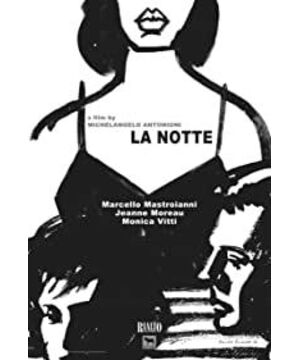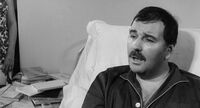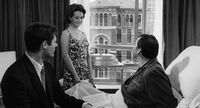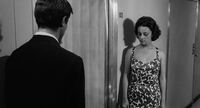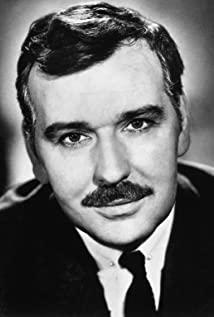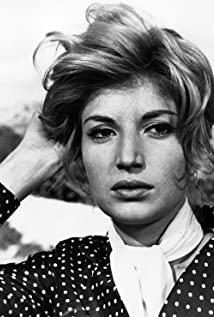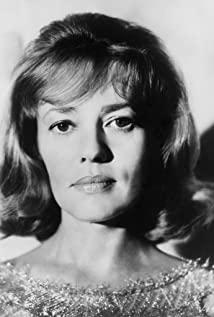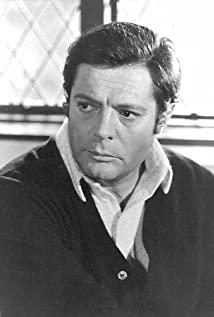Anna in "Adventures" suddenly disappeared when Sandro proposed marriage. The fear of uncertainty made it impossible to face the future, but the interesting thing is that even if Anna disappeared, it still failed to stop any surging lust in society. For the discovery of the age of desire, Antonioni is very sharp, but for the pursuit of modern people, Antonioni does not stop there, he continues to think, if Anna and Sandro enter the marriage hall, then Anna will be What will happen? Hence "Night".
In layman's terms, what Lydia and the writer encountered was the "seven-year itch" or "mid-life crisis". The surging lust in "Adventures" faded away, but instead "rockets" and "stone pillars". "Airplane" and other sexually suggestive objects, as well as events with strong life and wild power, such as striptease girls in black and gang fights, constantly appear in the film, constantly hitting Julia's field of vision. All imply a certain incompetence of the writer, and the unstoppable slide of the marriage into a state of weakness.
Secondly, what is more interesting is that in the face of the weakness of marriage, the two show completely different ways of coping. There are a lot of scenes of Julia walking around the city in the film. In a way, Julia resembles Baudelaire, quoted by Benjamin in The Lyric Poet of the Age of Capitalism. On the one hand, as a modern person who is aware of her own predicament, she is not only wandering in behavior, but also wandering in psychological sense. On the other hand, city blocks are the eternal sustenance she seeks. She saw sturdy buildings, and she went back to the old neighborhoods where the writers were in trouble, but she saw the ash on the walls shattered at the touch, and the clocks shattered and abandoned in the wasteland. Simply put, she tries to relive some kind of timeless experience by going back in time. The writer, on the other hand, has no nostalgia for the past. The self-rescue method he seeks is to refuse to look backward, but to look forward, trying to rekindle the passion of life by hunting new objects. It can be said that the two run in the opposite direction and are dislocated, and this self-rescue is bound to fail.
This reminds me of Chen Xi's novel "Itching", perhaps a distant echo.
Such a couple did not have a real dialogue until the end of the film. Julia rereads the love poems the writer wrote to her when she was in love with the writer, but ironically, the insider writer instead becomes an outsider by asking "who wrote this". This once again proves the impossibility of self-help.
So how do you understand sex in the wild mud? Julia once said, "I feel like I'm going to die because I find that I don't love you anymore." How desperate she was, but Julia still accepted, in her opinion, "It's just pity".
"It's nothing but mercy" breaks my heart. When I was young, it was nothing but passion. And no longer young, love is but pity.
View more about La Notte reviews


